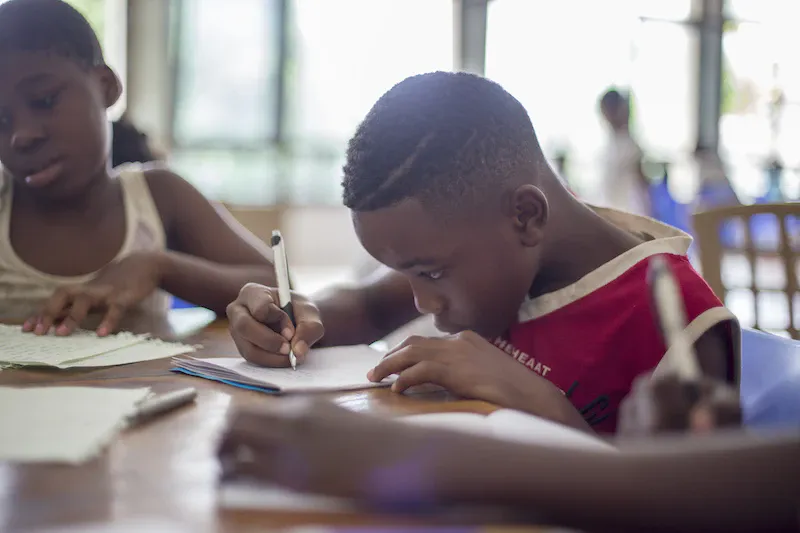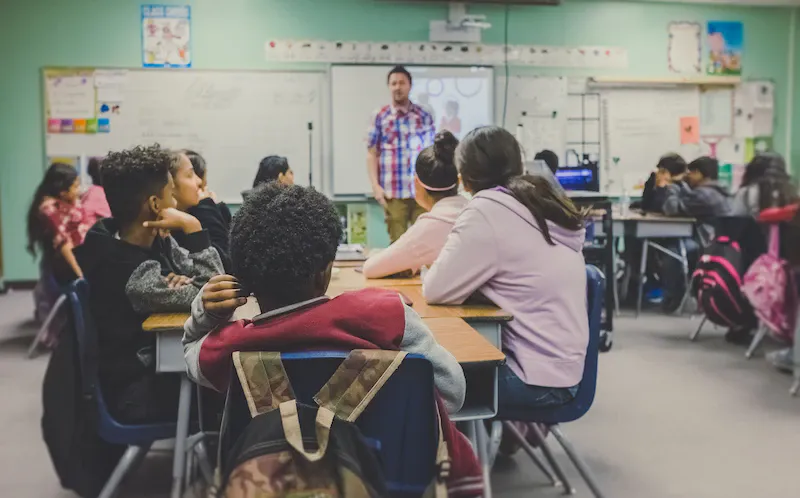Enabling Young Women: Breaking the Taboo of Sexual Education

The Taboo of Female Sexuality: Why We Need to Enable Young Women
The topic of female sexuality is still largely considered taboo in many cultures and societies. While boys are often expected to have knowledge and experience about sex, girls are often shamed and discouraged from exploring their sexuality. This is evident from a young age, when girls are scolded for touching themselves and made to feel ashamed of their bodies. As a result, many young women grow up without a basic understanding of their own bodies, sexual desires, and sexual health.
The lack of education and giving power around female sexuality can have serious consequences. In the video, a nurse practitioner specializing in adolescent medicine shared her experiences with teenage girls who feel confused and ashamed about their sexual experiences. Many of these girls have never had an orgasm and find sex to be boring or painful. They often lack the confidence to communicate their needs to their partners and feel powerless in their relationships.
It’s important to recognize that adolescent girls are sexual beings and denying them education and giving power around their sexuality can lead to negative consequences. According to the nurse practitioner, over a third of high school girls will have sex and nearly three quarters will have sex before they turn 21. It’s crucial that we start talking to girls about sex and providing them with the information and resources they need to make informed decisions about their sexual health.
The nurse practitioner emphasizes the importance of teaching girls that sex is a learned skill and that enjoyable sex doesn’t just happen. Girls need to know that sex should be about pleasing each other and that they have the right to say no to things they’re not comfortable with. Masturbation is also an important aspect of sexual education for girls, as it allows them to learn about their own bodies and how to have an orgasm.
It’s time to break the silence around female sexuality and enable young women to make informed decisions about their bodies and their sexual health. By talking openly and honestly about sex, we can help girls feel less alone, less confused, and less ashamed. We can also help them become sexually enabled and confident in their relationships.
The Reality of Teenage Girls and Their Sexual Experiences
Contrary to popular belief, teenage girls are sexually active and many have already had sexual experiences by the time they reach high school. However, due to the taboo surrounding female sexuality, many girls lack the education and resources needed to have safe and fulfilling sexual experiences.
According to the nurse practitioner in the video, many of her teenage patients have never had an orgasm and find sex to be boring or painful. This is often because they lack the knowledge and confidence to communicate their needs to their partners. Additionally, girls who are not enabled to make decisions about their own sexual health are more likely to engage in risky sexual behavior and are at a higher risk for sexually transmitted infections (STIs) and unintended pregnancies.
It’s important to acknowledge the reality of teenage girls’ sexual experiences and to provide them with accurate information and resources. This includes education about contraception, STI prevention, and the importance of communication and consent in sexual relationships. By enabling girls with the knowledge and tools to make informed decisions about their sexual health, we can help prevent negative consequences and promote healthy and fulfilling sexual experiences.
It’s also important to recognize that teenage girls are not a homogenous group and that their experiences with sex and sexuality are diverse. Factors such as culture, religion, and socioeconomic status can all play a role in shaping girls’ attitudes and beliefs about sex. By providing comprehensive and inclusive sexual education, we can help ensure that all girls have the information and resources they need to make informed decisions about their bodies and their sexual health.
Breaking the Silence: Talking to Girls about Sex
Talking about sex can be challenging for many people, especially when it comes to talking to young girls. However, it’s important that we break the silence surrounding female sexuality and provide girls with the information and resources they need to make informed decisions about their sexual health.
In the video, the nurse practitioner emphasized the importance of having short, frequent conversations with girls about sex. This can include talking about the sex scenes in movies, other people’s relationships, and articles in the media. By incorporating these conversations into everyday life, we can help girls feel more comfortable and confident when it comes to discussing sex and sexuality.
It’s also important to balance messages of caution with messages of giving power. Girls need to know that they have the right to say no to things they’re not comfortable with and that they should never feel ashamed or alone when it comes to their sexual experiences. By providing girls with a healthy vision of sex and teaching them how to communicate their needs and desires, we can help them become sexually enabled and confident in their relationships.
Parents, guardians, and healthcare providers all have a role to play in breaking the silence around female sexuality. This includes challenging cultural and religious beliefs that may contribute to shame and stigma around sex. By providing girls with comprehensive and inclusive sexual education, we can help them develop a positive and healthy attitude towards their bodies and their sexual health.
In short, talking to girls about sex is crucial for their sexual health and well-being. By breaking the silence and providing them with accurate information and resources, we can help girls become sexually enabled and confident in their relationships.
The Importance of Masturbation and Self-Exploration for Young Women
Masturbation is a natural and normal part of sexual development for both boys and girls. However, due to the taboo surrounding female sexuality, many girls are made to feel ashamed or embarrassed about exploring their own bodies. This can have negative consequences for their sexual health and well-being.
In the video, the nurse practitioner emphasized the importance of masturbation and self-exploration for young women. By learning about their own bodies and how to have an orgasm, girls can become more comfortable and confident when it comes to their sexual experiences. Masturbation can also help girls learn what feels good and what doesn’t, which can be valuable information when it comes to communicating with sexual partners.
It’s important to acknowledge that masturbation is still considered taboo in many cultures and societies. However, by providing girls with accurate information and resources about their bodies and their sexual health, we can help break down the barriers that prevent them from exploring their sexuality.
It’s also important to recognize that every girl is different and that there is no “right” way to masturbate or explore one’s own body. By providing girls with a safe and supportive environment to explore their own bodies, we can help them become more comfortable and confident in their own skin.
In short, masturbation and self-exploration are important aspects of sexual education for young women. By encouraging girls to explore their own bodies and providing them with the knowledge and resources to do so, we can help them become more comfortable and confident when it comes to their sexual health and well-being.
Sex Education for Girls: Why Waiting is Not Enough
There is often a misconception that waiting to have sex until marriage will prevent negative consequences and promote healthy sexual experiences. However, the reality is that simply waiting is not enough. Girls need comprehensive and inclusive sexual education in order to make informed decisions about their sexual health and well-being.
In the video, the nurse practitioner emphasized the importance of providing girls with accurate information and resources about sexual pleasure and orgasm, regardless of whether or not they are sexually active. This includes education about contraception, STI prevention, and the importance of communication and consent in sexual relationships.
It’s important to acknowledge that every girl is different and that there is no “right” age to start talking about sex and sexuality. However, by providing girls with comprehensive and inclusive sexual education from a young age, we can help them develop a positive and healthy attitude towards their bodies and their sexual health.
Waiting to have sex until marriage may be a personal choice for some girls, but it’s important to recognize that this is not a one-size-fits-all approach. By providing girls with accurate information and resources about sexual health and pleasure, we can help them make informed decisions that are right for their own bodies and their own lives.
In short, waiting to have sex until marriage is not enough. Girls need comprehensive and inclusive sexual education in order to make informed decisions about their sexual health and well-being. By providing girls with accurate information and resources, we can help them develop a positive and healthy attitude towards their bodies and their sexual health, regardless of their sexual activity.
The Role of Healthcare Providers in Enabling Young Women’s Sexuality
Healthcare providers have a critical role to play in enabling young women’s sexuality. By providing girls with comprehensive sexual education and access to sexual health services, healthcare providers can help promote positive sexual experiences and prevent negative consequences.
In the video, the nurse practitioner emphasized the importance of providing girls with a safe and supportive environment to discuss their sexual health and well-being. This includes providing girls with accurate information about contraception, STI prevention, and sexual pleasure, as well as offering confidential and non-judgmental support for any questions or concerns they may have.
It’s also important for healthcare providers to recognize the unique challenges that teenage girls may face when it comes to their sexual health. This includes addressing issues of power dynamics in relationships, promoting healthy communication and consent, and addressing any cultural or religious beliefs that may contribute to shame or stigma around sex.
By providing girls with comprehensive sexual education and access to sexual health services, healthcare providers can help prevent negative consequences such as unintended pregnancy and STIs, as well as promote positive sexual experiences and giving power.
In short, healthcare providers play a critical role in enabling young women’s sexuality. By providing girls with comprehensive sexual education and access to sexual health services, healthcare providers can help promote positive sexual experiences and prevent negative consequences. It’s important for healthcare providers to provide a safe and supportive environment for girls to discuss their sexual health and well-being, and to address the unique challenges that teenage girls may face when it comes to their sexual health.
Challenging Cultural and Religious Beliefs to Educate Young Women on Sex
Cultural and religious beliefs can play a significant role in shaping attitudes towards sex and sexuality, and can often contribute to shame, stigma, and misinformation. However, by challenging these beliefs and providing accurate and inclusive sexual education, we can enable young women to make informed decisions about their sexual health and well-being.
In the video, the nurse practitioner emphasized the importance of addressing cultural and religious beliefs that may contribute to shame or stigma around sex. This includes recognizing that different cultures and religions have different attitudes towards sex and sexuality, and that there is no one “right” way to approach these issues.
By challenging cultural and religious beliefs that may be harmful or stigmatizing, we can help promote a more inclusive and positive approach to sexual education. This includes recognizing the importance of consent and communication in sexual relationships, and providing girls with accurate information about contraception, STI prevention, and sexual pleasure.
It’s important to recognize that challenging cultural and religious beliefs around sex and sexuality can be difficult and sensitive. However, by providing girls with accurate and inclusive sexual education, we can help them make informed decisions that are right for their own bodies and their own lives.
In short, cultural and religious beliefs can often contribute to shame, stigma, and misinformation around sex and sexuality. By challenging these beliefs and providing accurate and inclusive sexual education, we can enable young women to make informed decisions about their sexual health and well-being. It’s important to recognize the sensitivity of these issues, but by providing girls with a safe and supportive environment to discuss their sexual health and well-being, we can help promote a more positive and inclusive approach to sexual education.
From Shame to Giving power: How Talking About Sex Can Transform Young Women’s Lives
Talking about sex can be challenging, but it’s a crucial step towards enabling young women to make informed decisions about their sexual health and well-being. By promoting open and honest conversations about sex, we can help transform shame and stigma into giving power and confidence.
In the video, the nurse practitioner emphasized the importance of talking to girls about sex, and the positive impact it can have on their lives. She discussed the need to provide girls with comprehensive sexual education and access to sexual health services, and to address the unique challenges that teenage girls may face when it comes to their sexual health.
By providing girls with accurate information about sex and sexuality, we can help them make informed decisions about their sexual health and well-being. By addressing issues of power dynamics in relationships, promoting healthy communication and consent, and challenging cultural and religious beliefs around sex and sexuality, we can help promote a more positive and inclusive approach to sexual education.
Through open and honest conversations about sex, we can help transform shame and stigma into giving power and confidence. Girls who feel informed and enabled about their sexual health and well-being are better equipped to make informed decisions about their own bodies and their own lives.
In short, talking about sex can be challenging, but it’s a crucial step towards enabling young women to make informed decisions about their sexual health and well-being. By promoting open and honest conversations about sex, we can help transform shame and stigma into giving power and confidence. By providing girls with accurate information and addressing the unique challenges they may face, we can help promote a more positive and inclusive approach to sexual education.
Conclusion
Sexual education is an essential part of promoting health and well-being among young women. Unfortunately, many young women face significant barriers when it comes to accessing accurate and comprehensive sexual education. From shame and stigma to cultural and religious beliefs, there are many factors that can prevent young women from feeling informed and enabled about their sexual health and well-being.
However, by promoting open and honest conversations about sex and sexuality, we can help break down these barriers and enable young women to make informed decisions about their bodies and their lives. Throughout this blog post, we have explored a range of topics related to sexual education and young women’s health, including:
- The taboo of female sexuality and the need to enable young women to hug their sexuality
- The reality of teenage girls and their sexual experiences, and the importance of promoting a positive and inclusive approach to sexual education
- Breaking the silence on sex and the role of parents, healthcare providers, and other trusted adults in promoting healthy conversations about sex
- The importance of masturbation and self-exploration in enabling young women to understand their bodies and their sexual desires
- The need for comprehensive sexual education that goes beyond abstinence-only messages and promotes accurate information about contraception, STI prevention, and sexual pleasure
- The role of healthcare providers in enabling young women to make informed decisions about their sexual health and well-being
- The challenges of addressing cultural and religious beliefs around sex and sexuality, and the importance of promoting an inclusive and positive approach to sexual education
- The transformative power of talking about sex and promoting giving power and confidence among young women.
By addressing these issues and promoting open and honest conversations about sex, we can help enable young women to make informed decisions about their sexual health and well-being. We must work together to break down the barriers that prevent young women from accessing comprehensive sexual education, and to promote a positive and inclusive approach to sexual education that promotes giving power, confidence, and well-being for all.




